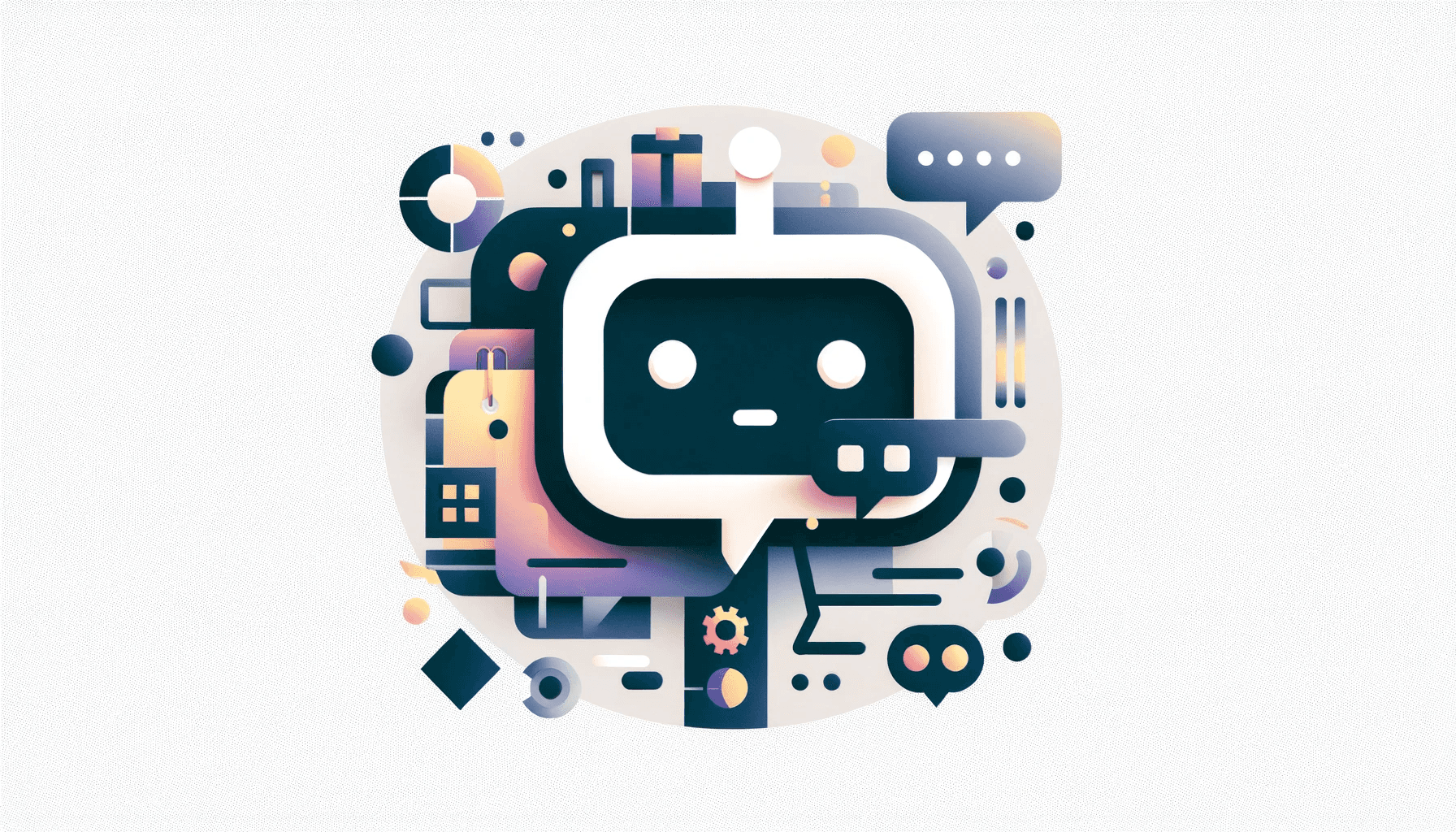Support center +91 97257 89197
E-commerce DevelopmentFebruary 13, 2024
Integrating Al Chatbots in E-commerce: Strategies and Benefits

In the dynamic world of e-commerce, the integration of AI chatbots represents a significant leap towards enhancing customer interactions and operational efficiency. This blog delves into the strategic implementation of AI chatbots within the e-commerce sector, highlighting their transformative benefits and practical integration strategies.
Understanding AI Chatbots in E-commerce
AI chatbots, powered by sophisticated algorithms and machine learning, are designed to simulate conversational interactions with users, providing immediate, personalized support. In e-commerce, these digital assistants offer a myriad of functionalities, from answering product queries to facilitating transactions and providing post-purchase support.
The evolution of chatbots has been remarkable. Initially, chatbots followed pre-defined scripts to interact with users. However, with advancements in natural language processing (NLP) and AI, today's chatbots offer much more nuanced and context-aware interactions, closely mimicking human conversation.
Strategies for Integrating AI Chatbots
- Identifying Integration Areas: The first step is to pinpoint where AI chatbots can add the most value. Common areas include customer service, sales assistance, and after-sales support. By automating routine inquiries, businesses can allocate human resources to more complex tasks, enhancing overall efficiency.
- Choosing the Right Platform: Selecting an appropriate AI chatbot platform is crucial. Factors to consider include the platform's ability to understand and process natural language, its integration capabilities with your existing e-commerce and CRM systems, and the level of customization it offers.
- Customization: Tailoring your AI chatbot to align with your brand voice and e-commerce needs is essential. This involves programming the chatbot to understand and respond to industry-specific queries and integrating it seamlessly with your product catalog and customer service workflows.
- Integration with Existing Systems: Effective integration with existing e-commerce platforms and CRM systems ensures a cohesive customer experience. This includes syncing customer data across platforms to provide personalized recommendations and support.
Benefits of AI Chatbots in E-commerce
- Enhanced Customer Service: AI chatbots provide instant, 24/7 support, addressing customer queries without wait times. This level of responsiveness significantly boosts customer satisfaction and loyalty.
- Personalized Shopping Experience: By analyzing customer data and interactions, AI chatbots can offer personalized product recommendations, improving the shopping experience and increasing sales conversion rates.
- Operational Efficiency: Automating routine tasks like order inquiries and tracking updates frees up human resources for more strategic activities, improving overall operational efficiency.
- Insights from Customer Interactions: AI chatbots can collect valuable data from customer interactions, providing insights into customer preferences and behavior. This data can inform business strategies and product offerings.
Best Practices and Considerations
- Data Privacy and Security: Ensuring the confidentiality and integrity of customer data is paramount. Businesses must choose AI chatbot solutions that comply with data protection regulations and implement robust security measures.
- Balancing Automation and Human Touch: While AI chatbots can handle many customer interactions, it's crucial to maintain a balance with human support for complex issues, ensuring a personalized and empathetic customer experience.
- Continuous Learning: AI chatbots should be designed for continuous learning, allowing them to improve over time based on customer interactions and feedback.
Real-World Applications of AI Chatbots in E-commerce
E-commerce giants and innovative startups alike Alibaba have successfully integrated AI chatbots, redefining customer service standards. For instance, a leading online retailer employs an AI chatbot that assists customers in finding products, tracking orders, and resolving common issues, all through intuitive chat interfaces. This chatbot, equipped with machine learning, continuously refines its responses based on customer interactions, ensuring increasingly personalized and accurate support.
Another example is a fashion e-commerce platform Myntra that uses an AI chatbot as a virtual stylist. This chatbot asks customers questions about their style preferences and occasions, then recommends outfits from the platform's inventory, effectively acting as a personal shopper.
Advanced Customization Strategies
- Contextual Understanding: Implementing advanced NLP allows chatbots to understand the context of customer inquiries better, enabling more accurate and relevant responses. For instance, a chatbot that recognizes a customer is inquiring about a "return" within days of a recent purchase can proactively offer to initiate the return process.
- Integration with Analytics: By integrating AI chatbots with e-commerce analytics platforms, businesses can leverage real-time data to tailor customer interactions. For example, if a customer frequently browses a particular category, the chatbot can highlight new arrivals or deals in that category.
- Multilingual Support: Customizing AI chatbots to support multiple languages can significantly enhance the customer experience for global e-commerce platforms, making shopping seamless for non-English speakers.
- Voice-Enabled Chatbots: Incorporating voice recognition technologies transforms text-based chatbots into voice assistants, providing a more accessible and convenient interface for users, especially on mobile devices.
Future Trends in AI Chatbot Technology
- Emotion Recognition: Emerging technologies enable chatbots to analyze textual or vocal cues to gauge a customer's emotional state, allowing for more empathetic responses. This could revolutionize customer service, particularly in handling sensitive or complex issues.
- Augmented Reality (AR) Integration: AR combined with AI chatbots could offer immersive shopping experiences, allowing customers to visualize products in their environment or on themselves before making a purchase, all guided by a conversational AI.
- Blockchain for Security: Integrating blockchain technology could enhance the security and transparency of transactions and data handled by AI chatbots, building trust among users.
- Predictive Analytics: Future AI chatbots could leverage predictive analytics to anticipate customer needs before they even articulate them, offering solutions, products, or information proactively.
Conclusion
The integration of AI chatbots in e-commerce is not just a trend but a transformative shift towards more personalized, efficient, and engaging shopping experiences. As these technologies evolve, we can expect even more innovative applications and a deeper integration into the fabric of digital commerce. Businesses that harness the power of AI chatbots effectively will likely lead the charge in the future of e-commerce, setting new benchmarks for customer engagement and satisfaction.
The journey of integrating AI chatbots into e-commerce platforms is an ongoing process of innovation and refinement. By staying abreast of advancements in AI, machine learning, and customer engagement technologies, businesses can continue to enhance their e-commerce offerings, providing unparalleled shopping experiences that meet the ever-evolving expectations of modern consumers.
TLDR
This blog explores the integration of AI chatbots in e-commerce, highlighting key strategies for effective implementation and the myriad benefits they bring, including enhanced customer service, personalized shopping experiences, and operational efficiencies. It also addresses best practices and considerations for a successful AI chatbot integration.
FAQs
AI chatbots are intelligent software applications designed to simulate human-like conversations with users, typically through messaging interfaces. They leverage natural language processing (NLP) and machine learning (ML) to understand and respond to user queries, providing assistance, information, or performing tasks like placing orders.
AI chatbots can provide instant, 24/7 customer support, handle multiple queries simultaneously, and offer personalized shopping assistance, significantly enhancing the overall customer service experience in e-commerce.
Challenges include selecting the right AI technology that aligns with business goals, ensuring seamless integration with existing systems, maintaining data privacy, and providing a balanced human touch in customer interactions.
Businesses can ensure data security by choosing reputable AI chatbot platforms that comply with data protection regulations, implementing strong encryption methods, and regularly auditing chatbot interactions.
Work with us








